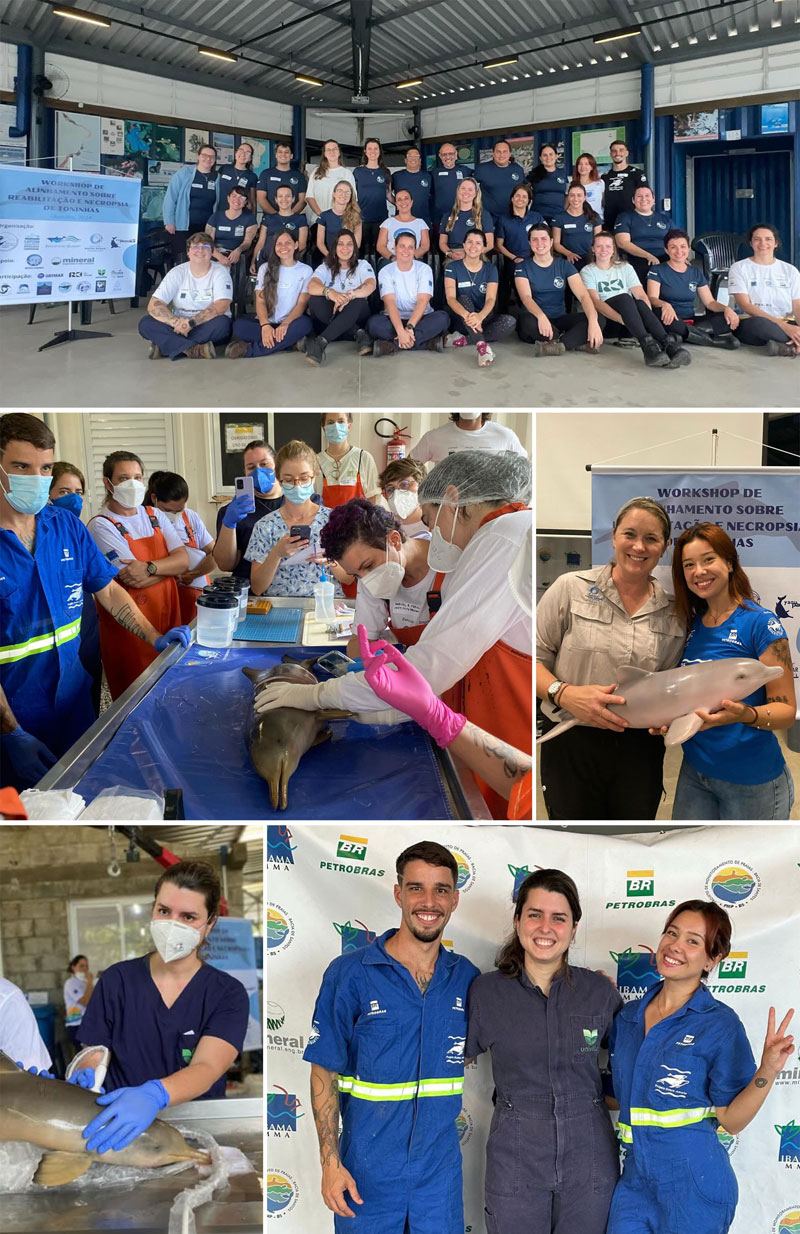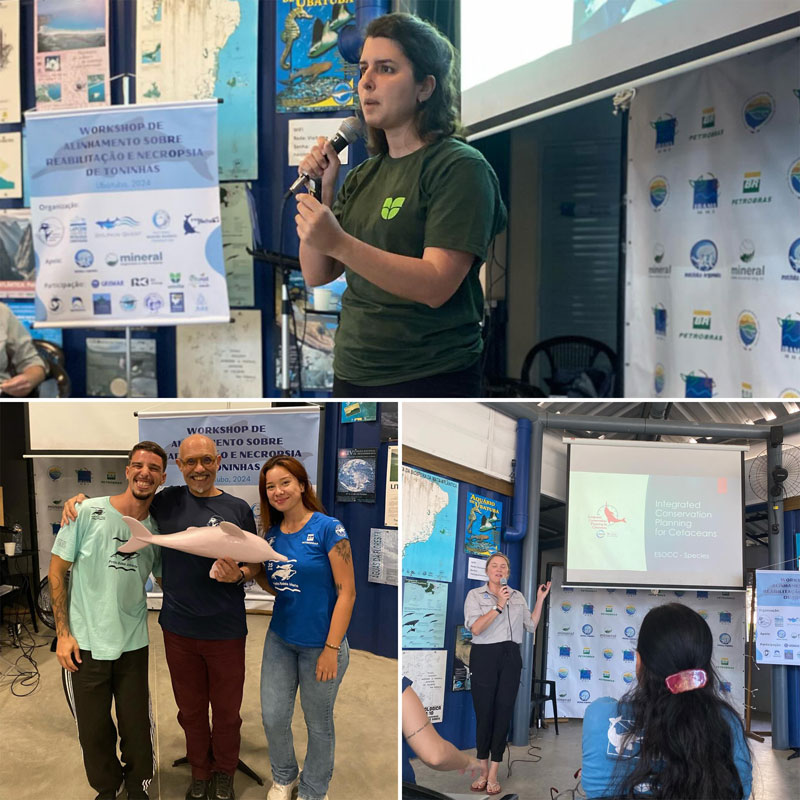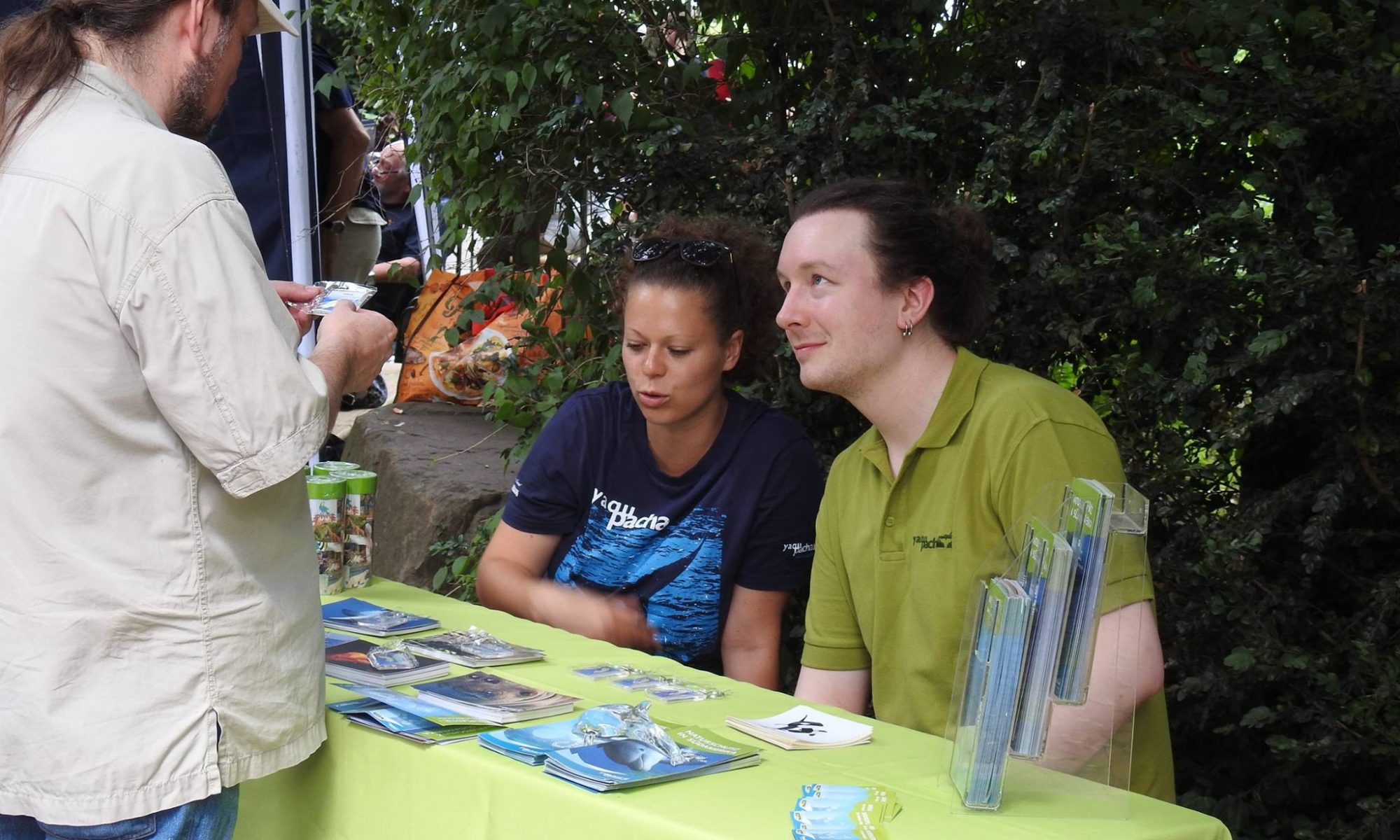
Ubatuba, Brazil – From November 8 to 10, the Alliance for the Franciscana Dolphin Conservation Research, Rescue and Rehabilitation (AFCR3) held a groundbreaking workshop at the Instituto Argonauta to advance conservation efforts for the Franciscana dolphin (Pontoporia blainvillei). Led by Dr. Jenny Meegan of the National Marine Mammal Foundation (NMMF), USA, and Dr. Aricia Benvenuto of the University of São Paulo, Brazil, 24 participants from various Brazilian institutions came together to discuss basic rehabilitation techniques and standardized necropsy protocols.
The workshop focused on two critical needs: the rehabilitation of stranded Franciscana dolphins, from newborns to adults, and the ability to perform standardized necropsies to identify threats and causes of death. The training was based on scientifically sound protocols developed by the Alliance, a collaborative network of over 34 veterinarians, biologists, nutritionists, and zootechnicians from Argentina, Uruguay, Brazil, the US, Spain, and Germany.
Urgent need for action
The Franciscana dolphin is classified as endangered on the IUCN Red List of Threatened Species due to widespread threats such as bycatch, habitat loss, and pollution. In Brazil, however, the species is even more endangered and is listed as Critically Endangered (CR) on the country's national Red List. The high number of strandings underscores the urgent need for qualified rehabilitation measures, while necropsy data is essential to understand and address the causes of mortality.
"Workshops like this are not just about saving individual animals, but about securing the future of a species," says Dr. Jenny Meegan. "From our perspective, this is an opportunity to combine global expertise with local conditions. Collaborations like this allow us to share advanced veterinary techniques and rehabilitation protocols developed at the international level and ensure that this knowledge is available to those who need it most. Protecting the Franciscana dolphin is a global task, and every effort, no matter who it comes from, contributes to the survival of this species. The NMMF has learned a lot by working with conservation teams in other countries, and we are honored to support the incredible work being done here in Brazil.
Dr. Aricia Benvenuto emphasized the local perspective: "In Brazil, the Franciscana dolphin is an important part of our marine biodiversity, and its endangered status is a call to action for all of us. This workshop is crucial because it provides local professionals with the tools and knowledge they need to respond effectively to strandings and perform meaningful necropsies. Strengthening Brazil's capacity to rescue and protect marine mammals is critical to the survival of this species. As someone who works directly with the marine ecosystems where these dolphins live, I see the urgent need for collaborative efforts like this. Together, we can ensure that conservation remains not just a concept, but is put into practice in the regions where it is most needed.
Why this workshop is important:
Allianz's commitment to preserving the Franciscana dolphin depends on a multi-faceted approach, and this workshop is an example of its goals:
- Improving rehabilitation success: The training enables participants to provide professional care for stranded dolphins, thereby increasing their chances of survival.
- Sound conservation strategies: Standardized necropsies provide important data for combating anthropogenic threats, from fishing practices to environmental toxins.
- Global cooperation: The workshop underscores the Alliance's commitment to cross-border knowledge exchange and the promotion of international cooperation for species conservation.
About the alliance
The AFCR3 was founded in 2019 with the aim of providing assistance during strandings, supplying important equipment and expertise, and empowering conservationists through training. Founding members YAQU PACHA and Nuremberg Zoo coordinate the alliance's activities with other institutions and drive forward the mission to protect the Franciscana. Many non-governmental organizations and universities from South America, such as Fundación Mundo Marino & Aquarium (Argentina), Karumbé & RENACE (Uruguay), Univ. of São Paulo, Biopesca, Univ. do Estado de Santa Catarina, Univ. Federal do Paraná, CRAM, R3, Aiuká, UNIVILLE, Inst. Gremar, and Inst. Argonauta (all from Brazil), are active members of this alliance. In addition, organizations such as the National Marine Mammal Foundation (NMMF) and Dolphin Quest from the USA, as well as L'Oceanogràfic, Nuremberg Zoo, YAQU PACHA, and ZOOMARINE – Algarve from Europe are providing crucial support for this initiative. This diverse coalition underscores the importance of global cooperation in securing the future of the Franciscana dolphin.
Dr. Lorenzo von Fersen, Chairman of YAQU PACHA, emphasized the organization's long-standing commitment: "YAQU PACHA has been focusing on the protection of the Franciscana dolphin for almost 26 years. One of our main goals is to strengthen the capacities of local experts and institutions and ensure that they are equipped with the necessary tools and knowledge to protect this remarkable species. Collaboration and education are at the heart of our work, and this workshop is a testament to these values.
The success of the workshop was greatly supported by Instituto Argonauta, whose team provided exceptional logistical and technical assistance. Their commitment to marine conservation and practical experience in dealing with stranded marine mammals made them an invaluable partner in this event.
This workshop is a crucial step toward building a bridge between science and practice and securing the future of one of the world's most endangered dolphin species.


